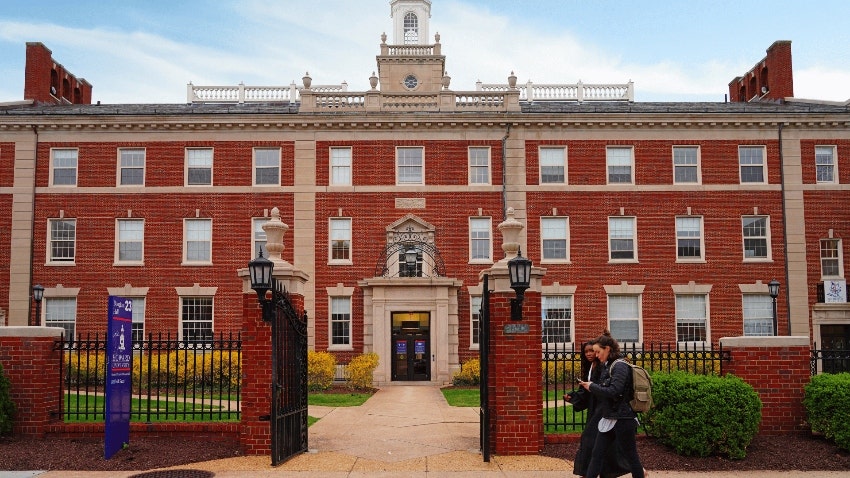The Secret I Carried For 23 Years — And What Happened When I Spoke It Aloud
Violation, silence, and the slow erosion of my self-worth.
 Simon Marsaul | Unsplash
Simon Marsaul | Unsplash In my house when I was kid, we tiptoed to tread lightly to avoid the undercurrents of depression, addiction, and dysfunction.
We swept arguments under the rug, rarely acted out, and never raised our voices. At school, this translated into excellent rule-following. I was quiet and serious, and the teachers asked me to help offset the troublemakers. Secretly, I envied them.
In middle school, I was placed in a school counseling group for Children of Alcoholics. It was awful. The stories I heard there were so horrific, that I began to feel I had no right to be upset, by comparison.
Eventually, after 14 years of heartache, my mom left my dad, and I stopped hiding so much. It was a move that was years in the making, and I drew strength from her freedom even as we grieved.
I began to emerge and experience the world. I let go of some of the shame I carried, and I discovered myself in the wings of school theater productions and in the responsibility of my first retail jobs.
Eventually, I realized my life was mine to design.
 EQRoy / Shutterstock
EQRoy / Shutterstock
I filled out financial aid forms, secured funding, and left for college in DC. I was following my passions. I was going somewhere.
I fell in love with that city: the incredible history, the complex anger, the walkability and opportunities, and intellectual discoveries. I had every internship, visited every neighborhood, learned to dream big, and found freedom with nobody to hold me back.
And then, it happened again: In my sophomore year, I was assaulted.
The circumstances were muddy: A night out with friends, a guy I didn’t know. He offered to walk me home and then goaded me into his building. He took advantage of me in ways I didn’t want; and did things I didn’t know how to stop him from doing.
When it was over, I left. I walked myself home alone, after all. The next morning, I woke up and dressed for my Saturday restaurant double shift. By mid-afternoon, the memories started to leak out. Flashbacks flooded over me as I suddenly realized what had happened, and how it had occurred against my will.
On Monday, I sought counseling through the University. A woman there tried to explain consent and coercion. I began to wonder:
Had I said ‘no’ — and had I said it loud enough?
Had I somehow invited what happened?
Did I have a right to feel violated if I hadn’t worked hard enough to stop it?
I also learned I had options: I could report the incident through the school, or through the city. I could also do nothing. What mattered was having choices in a situation where I felt stripped of my agency.
Ultimately, though, what happened was this: I confided in a few friends. I learned that this wasn’t the first time this guy had been accused of violating women. I reached out to some of his other victims. They were kind, but they were suffering. They didn’t want to bond or join forces, over this.
And then, a well-meaning friend reported the incident without asking.
They were fraternity brothers and, in his desire to do what he felt was right, he neglected to ask if that was what I wanted. I felt stripped of my agency once again.
The university opened a case against him, with me as the witness. I confronted my rapist in a hearing. I was too scared to attend in person, so I dialed in by phone. He was allowed to ask me questions directly.
“Why did you come up to my room?” he asked. “I didn’t have to force you.”
“Why did you smile?”
I could hear his sneer. Later, on a walk that evening, another friend asked me: “Are you sure you remember it all correctly?”
I spiraled in shame. And then: The university ruled in his favor. They took his side.
He was given a restraining order and was free to carry on. He haunted my dreams, and the sidewalks of my campus, for the next two and a half years. Leering. Taunting. Grinning at me from across the street.
I moved on. I tried to, anyway. I threw myself into achievements. I mistook frenetic motion for healing.
I confused large friend groups for social intimacy. I kept shallow relationships, putting everyone at arm’s length. I never confided in my parents about any of this. I stopped seeing the counselor.
I wrote in my journal but had lost the ability to hear my inner voice. In place of my own goals and dreams, I learned to focus on meeting external expectations.
My success grew, but my self-worth started to dim, and my gut instincts softened to a whisper. I can see now how having my words dismissed by those assigned to judge them made it harder to believe in myself.
The experience eroded my sense of identity. This process unfolded for years afterward.
After the assault, and after college ended, my life was busy. My career took me everywhere. I explored the world, fell in love, and learned fascinating things. I volunteered, gave back, and mentored others. I became addicted to work, but work rewarded me back.
I earned a good living and built a great life. I found time to become a mom, I showed up for my parents as both of their health conditions declined, and I felt very connected to my sister and extended family.
But while I was so deep in it all, I couldn’t see what was rumbling underneath. As time went on, I lost more and more of myself. Even with all of these achievements, my inner voice was steadily replaced with negative echoes of those earliest messages from my childhood.
The drumbeat grew into a roar:
Don’t be a bother.
Don’t show off too much.
Don’t talk so loud.
Give more of yourself.
Keep less for you.
Love means sacrifice.
You owe us your loyalty.
Never complain.
Be grateful for what you have.
Practice self-care — but don’t be selfish.
Looking back at this now, each insidious message felt like a small death to my inner voice. They were like acts of violence that were slight, yet repetitive, and over time would conspire to kill off my self-worth.
Until one day when I woke up and realized, I’d lost my voice altogether. My life has been a triumph, not a tragedy.
But as I have written before, this erosion of self-worth is a problematic altogether pattern that afflicts many of us, and women most of all.
As we grow from girlhood to adolescence, and we move from our education to our careers to becoming wives and mothers and bosses, we mistake maturation for power. We may be fully grown, but we are not fully realized.
Our path to success often coincides with a diminishing sense of self. The higher we climb, the more responsibility we carry. The more we carry, the more we contort, until we disappear under the weight of it all.
 fizkes / Shutterstock
fizkes / Shutterstock
Society wants us to believe things have changed, and that our world today is built on equality that our forebears fought hard to achieve before us. We willingly pick up the mantle and try to believe that we truly can have it all.
We sacrifice ourselves to this myth of the powerful modern woman because we are terrified of neglecting our role in forward progress. Ever loyal, we don’t want to undo hard-fought gains or set future generations backward. Yet many of the systems that proclaim to support us remain stubbornly outdated:
Colleges and universities are motivated by reputation, by tuition, and by projecting an environment of safety. They are more interested in sweeping our violations under the rug than leveraging their role to deter future violence.
Courtrooms historically dismiss our voices, especially and most disproportionately among women of color. Workplaces are similar. HR is presented as a resource for protecting employees, but when we report harassment, we are rarely protected.
Companies, like universities, want to avoid legal messes and damage to their image. They are not judicial institutions, though they conduct investigations and render judgments all the time.
Data shows that little progress has been made in workplace harassment cases because most often, they decide on the side of their interests. Of course, they do.
Our friends, communities, and professional networks also become tired of outspoken women. We are supposed to support and regulate outbursts from others, not make them loudly ourselves.
Just like my teachers in elementary school who asked me to help make the loud kids calmer, we expect women to be the calming force that makes all the spaces we inhabit safer, quieter, and more comfortable for others.
Women are expected to give all of themselves, in sacrifice of themselves. We shall not agitate. We shall not gloat.
And never, shall we ever, complain about our mistreatment. Here is how I finally began to get my voice back: In 2017, I was a mother of two, a managing director in a global firm, and a Very Busy Person.
My husband was equally accomplished, and we strung together the complex logistics of our lives through a network of nannies, dog walkers, and babysitters. We never had room to breathe, which meant we never had to face our existential questions. Instead, they began to bubble up in disobedient ways.
My father passed in early 2016 in a gruesome and tragic manner, and then I had my second baby and returned to work after my maternity leave. I thought I was doing just fine because I was excellent at compartmentalizing and even better at self-deception.
My return to work was bumpier than it had been the first time around. Suddenly, instead of a working woman with a baby on the side, I had two children, and I felt like a mother who also had a job. One that, for the first time I could remember, I didn’t find very motivating anymore.
It was at this time that I began to feel it: a small niggling doubt, physically uncomfortable, so foreign that I had no idea what it could be. It lived in the pit of my stomach, and began to get louder whenever I had a moment alone, or when I listened to music, or did anything even remotely creative. I realized that I felt trapped.
All of my achievements, all the success and obligations of the life we had built, and all the responsibilities for so many people and teams, started to get too noisy.
These voices crowded my head. I felt like I was attempting too much and doing none of it well.
Suddenly, I had the desire to be more selfish with my emotional and intellectual energy. I wanted to save my best self for my children, not my colleagues. I wanted to hear my own desires once more, to have original ideas, and maybe even invent something new.
I wanted to feel creative, inspired, and passionate like I had been years and years before I had lost my access to myself.
I had no idea what to do with this discovery. After decades of shaping myself in the image of external forces, how might I begin to figure out what I, truly, wanted to do? How, on earth, does one figure that out?
My husband and I looked together at our carefully constructed life for levers we could pull. Should we change jobs? Move somewhere? Try a new resource for live-in childcare?
In the end, we chose a move. We would finally make good on our pipe dream to relocate our family from D.C. to rural Vermont.
It was something we’d toyed with for years but never felt was the right time. Suddenly, we found ourselves less nervous about breaking things and decided instead to initiate change by changing our geography and seeing what else would follow.
Cashing in on the tremendous amount of privilege we had cultivated over the years, we notified our employers that we’d be going remote, and took a year to execute our move.
We arrived in Vermont in 2019. A lot of things changed after that moment. But none of them overnight.
My new surroundings jarred me loose. They opened new opportunities and set new possibilities into motion. They challenged my long-held beliefs about who I was allowed to be and become.
We traded our dirty urban alleyway for endless green space. Our girls became Vermont Kids. They played freely in our yard and took up every outdoor sport. We had to buy a lot of mittens.
We continued to consult and travel, but we did so from the mountains. Most importantly, we grew closer as a unit, and we chose ourselves. My husband took a new job.
Nine months later, I quit my company after more than a decade there. Three days later, on February 3, 2020, I launched my consultancy.
Six weeks after that, we were in COVID lockdown. I had a lot of time to think and write. I began to discover that my internal voice was still there, it was just turned to such a low decibel I had lost the ability to hear it.
As I took more risks, I found I could hear myself more clearly. My confidence returned. My business took off. Two years later, my mother died after a long, protracted decline. I found a new therapist. I grieved indulgently, unhurried.
I took a sabbatical. I did The Artist’s Way. I made an audio documentary. I built my business even more.
Over time, my voice grew back. Like a muscle that was long dormant, it emerged once more with regular exercise — and it was stronger, louder, and more powerful.
And then one day, in late December 2024, amid ongoing coverage of the Gisele Pelicot case in France, I read a story in the New York Times about the actress Blake Lively. She had been the victim of a smear campaign by her director and costar on a film.
The evidence presented was disturbing, and I felt outraged. Thinking about how these women had been undermined when they tried to speak up shook me deeply. And suddenly, I began thinking about my rape.
I remembered how I felt when I was not believed. How I had been failed by a system that I thought would protect me. How it had happened during such a precious and emerging moment in my life and my relationship with my identity.
I had known that the loss of my voice went all the way back to childhood, and had continued throughout my career. But suddenly I could recognize how much it really disappeared in that one, key moment that I had overlooked out of shame for decades.
I suddenly remembered how, as a 19-year-old, enrolled at an institution for learning, empowerment, and discovery, I had felt truly let me down. That was when I decided to tell this story.
It took me 23 years to find the self-worth to speak up about my story and I do not intend to stop, as long as it can help others to do the same.
Sexual abuse is very common. RAINN reports that every 68 seconds, an American is a victim of sexual violence. Females are far more likely to be abused and assaulted, and 90% of victims who are adults are women.
This is especially prevalent among women who also happen to be college students, which makes their risk three times greater. Anyone affected by sexual assault can find support on the National Sexual Assault Hotline, a safe, confidential service. Contact The Hotline or call 800-656-HOPE (4673) to be connected with a trained staff member.
Cat O’Shaughnessy Coffrin is a writer, speaker, consultant, and coach, whose work focuses on helping women reclaim their voices. She has been featured in Fast Company, Medium, Forbes, Bizwomen and Business Insider among others.

